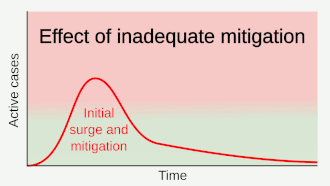

Strategic Pandemic Mitigation: Safeguarding Global Well-being
The ongoing challenge of pandemics necessitates strategic mitigation efforts to protect global well-being. In this article, we explore effective strategies employed to mitigate pandemics and foster a resilient, healthy global community.
Early Detection and Surveillance Systems
A cornerstone of pandemic mitigation is the establishment of early detection and surveillance systems. Rapid identification of potential outbreaks allows for timely response and containment. This proactive approach involves monitoring patterns of illness, utilizing data analytics, and collaborating on a global scale to ensure swift information dissemination.
Public Health Education and Communication
Mitigating a pandemic requires informed and empowered communities. Public health education and communication play a vital role in raising awareness about preventive measures, symptoms, and vaccination. Transparent and clear communication fosters a sense of collective responsibility, encouraging individuals to adhere to guidelines and actively participate in pandemic mitigation efforts.
Robust Testing Infrastructure and Accessibility
A robust testing infrastructure is essential for efficient pandemic mitigation. Widespread and accessible testing facilities enable the identification and isolation of cases, preventing further transmission. Timely testing, coupled with efficient contact tracing, forms a critical component of the strategy to break the chains of infection and contain the spread.
Vaccination Campaigns for Herd Immunity
Vaccination campaigns are pivotal in achieving herd immunity and reducing the severity of pandemics. Strategic planning, equitable distribution, and public confidence are key elements of successful vaccination efforts. These campaigns not only protect individuals but also contribute to community-level immunity, creating a barrier against widespread transmission.
International Collaboration and Data Sharing
Pandemics transcend borders, underscoring the importance of international collaboration and data sharing. Sharing information about virus variants, treatment outcomes, and vaccination efficacy enables a collective response. Global cooperation fosters the development of unified strategies, resource sharing, and a coordinated approach to mitigate the impact of pandemics.
Healthcare System Preparedness and Resilience
Mitigating pandemics necessitates prepared and resilient healthcare systems. Adequate infrastructure, sufficient medical supplies, and a trained healthcare workforce are essential components. Investing in healthcare system preparedness ensures a swift response to surges in cases, minimizes strain on resources, and enhances the ability to provide effective care.
Strategic Travel Restrictions and Quarantine Measures
Strategic travel restrictions and quarantine measures are instrumental in controlling the spread of infectious diseases. Temporary limitations on international and domestic travel, coupled with quarantine protocols, help prevent the rapid dissemination of viruses. These measures buy valuable time for response strategies to be implemented.
Community Engagement and Empowerment
Engaging communities actively in pandemic mitigation is crucial. Empowering individuals to take ownership of their health, adhere to guidelines, and support vulnerable members fosters a collective sense of responsibility. Community engagement initiatives can include grassroots education, local partnerships, and initiatives promoting social support.
Research and Innovation for Treatment and Prevention
Pandemic mitigation benefits immensely from ongoing research and innovation. The development of effective treatments, antiviral medications, and advancements in vaccine technology are paramount. A commitment to research ensures that mitigation strategies evolve based on the latest scientific knowledge, enhancing the global capacity to respond to emerging threats.
Post-Pandemic Preparedness and Learning
As pandemics unfold, learning from each experience is crucial for post-pandemic preparedness. Analyzing response strategies, identifying strengths and weaknesses, and integrating lessons learned into future preparedness plans contribute to building a more resilient global health infrastructure. Each pandemic becomes an opportunity to refine strategies and enhance mitigation capabilities.
Explore more about Pandemic Mitigation at cloudfeed.net
For in-depth insights into pandemic mitigation strategies and global health initiatives, visit cloudfeed.net. This platform offers valuable resources, updates, and perspectives on safeguarding global well-being through effective pandemic mitigation.
